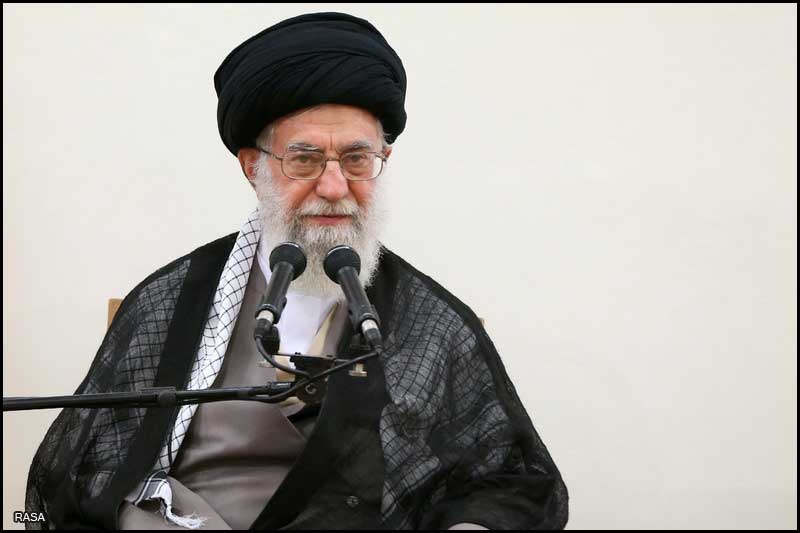
RNA - “If the sanctions are not going to be removed, then there will be no deal,” Ayatollah Seyed Ali Khamenei said in a Thursday meeting with members of Iran’s Assembly of Experts in Tehran.
The Leader said that certain concessions made on some cases in the nuclear negotiations between Iran and world powers were mainly aimed at the termination of sanctions.
Otherwise, there was no necessity for taking part in the negotiations, Ayatollah Khamenei stated, adding that the country could go on and triple the number of its centrifuges to 60000, keep enriching uranium to 20%, and accelerate its Research and Development (R&D).
The Leader further emphasized that if the sanctions are going to be suspended, then Iran’s commitments would also be limited to the level of suspension.
“We insisted (since the beginning of the negotiations) that sanctions ought to be lifted, not suspended,” Ayatollah Khamenei reiterated.
Iran and the Group 5+1 (Russia, China, US, Britain, France, and Germany) on July 14 reached a conclusion on a lasting nuclear agreement that would terminate all sanctions imposed on Tehran over its nuclear energy program after coming into force.
Ayatollah Khamenei said Iran is not like some other underdeveloped countries that the US officials speak to as they wish, and stressed that Iran is a powerful nation and has already proved its capabilities in action.
He referred to the US officials' remarks that they expect Iran to pick up a different course of action, and said they mean ignoring the Islamic values, non-commitment to the Islamic laws and Iran's compliance with the US policies in the region which include full annihilation of the resistance forces and full hegemony over Syria and Iraq, and they should know that "such a thing will never happen".
Elaborating on the process of the JCPOA's approval in Iran after the nuclear agreement was reached with the world powers in Vienna on July 14, Ayatollah Khamenei underlined that the JCPOA should be precisely scrutinized by experts, and stressed that the parliament should certainly play a role in this regard.
Yet, he said he reserves judgment on the agreement and would not advise "the parliament on how to study the JCPOA or on approving or disapproving it. These are the people's representatives who should decide about it."
Iran and the world powers reached a final agreement in Vienna on July 14 to end a 13-year-old nuclear standoff.
A week later, the UNSC unanimously endorsed a draft resolution turning into international law the JCPOA reached between Iran and the 5+1 group of countries (the US, Russia, China, Britain and France plus Germany) over the Islamic Republic’s nuclear program.
Now the US Congress and the Iranian parliament have less than 50 days to review the deal to approve or reject its practice.
R111/108/A/